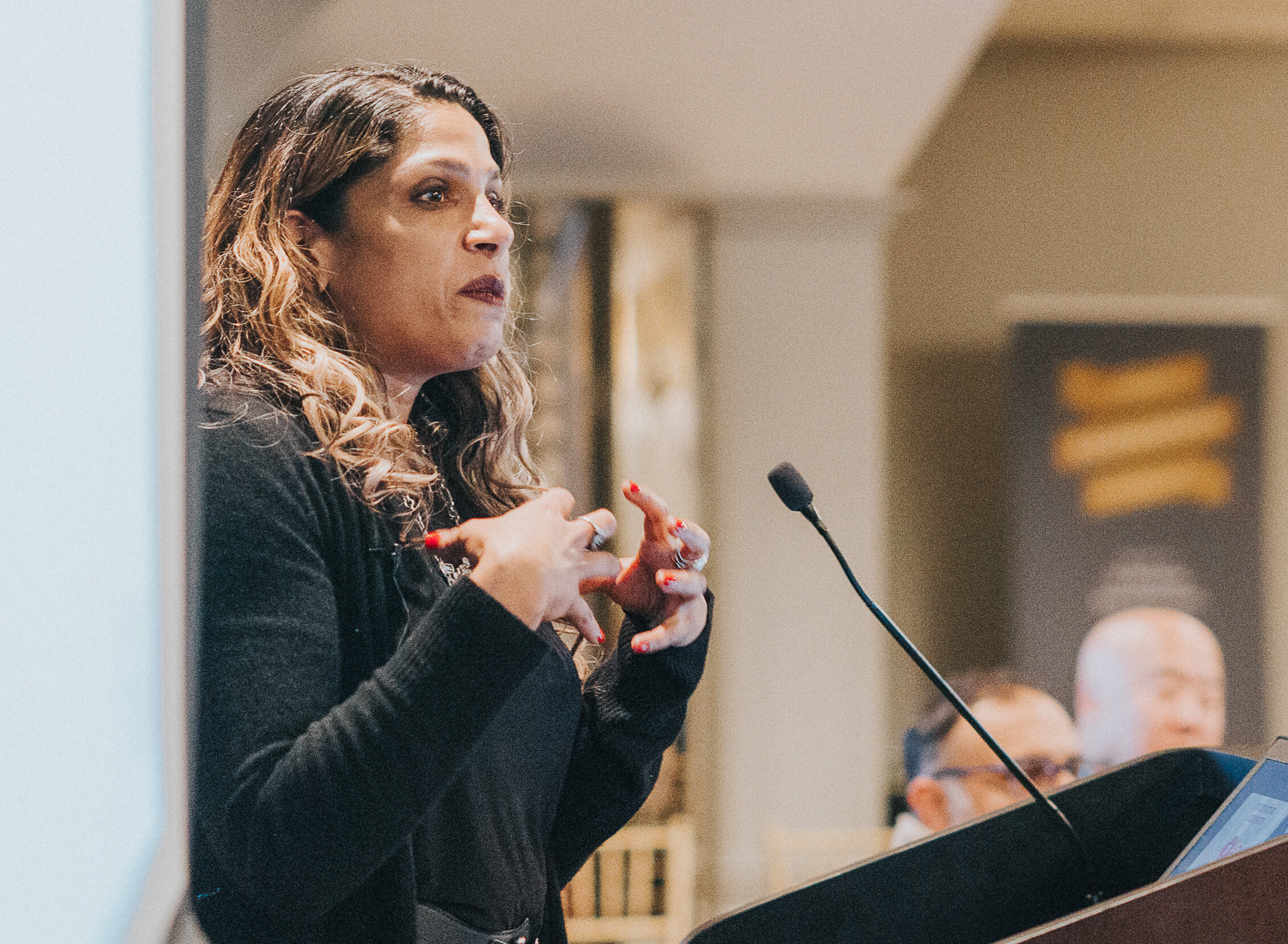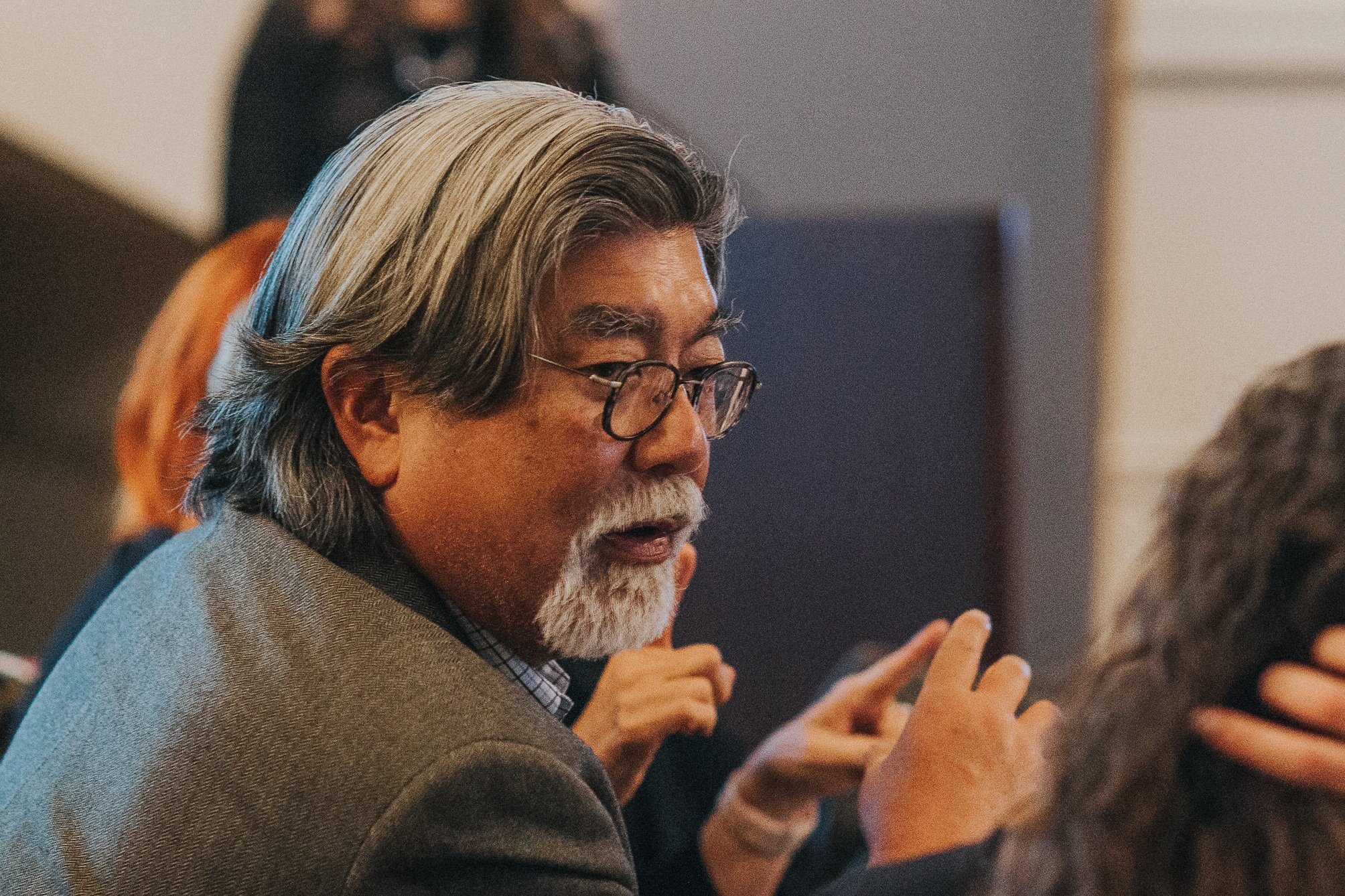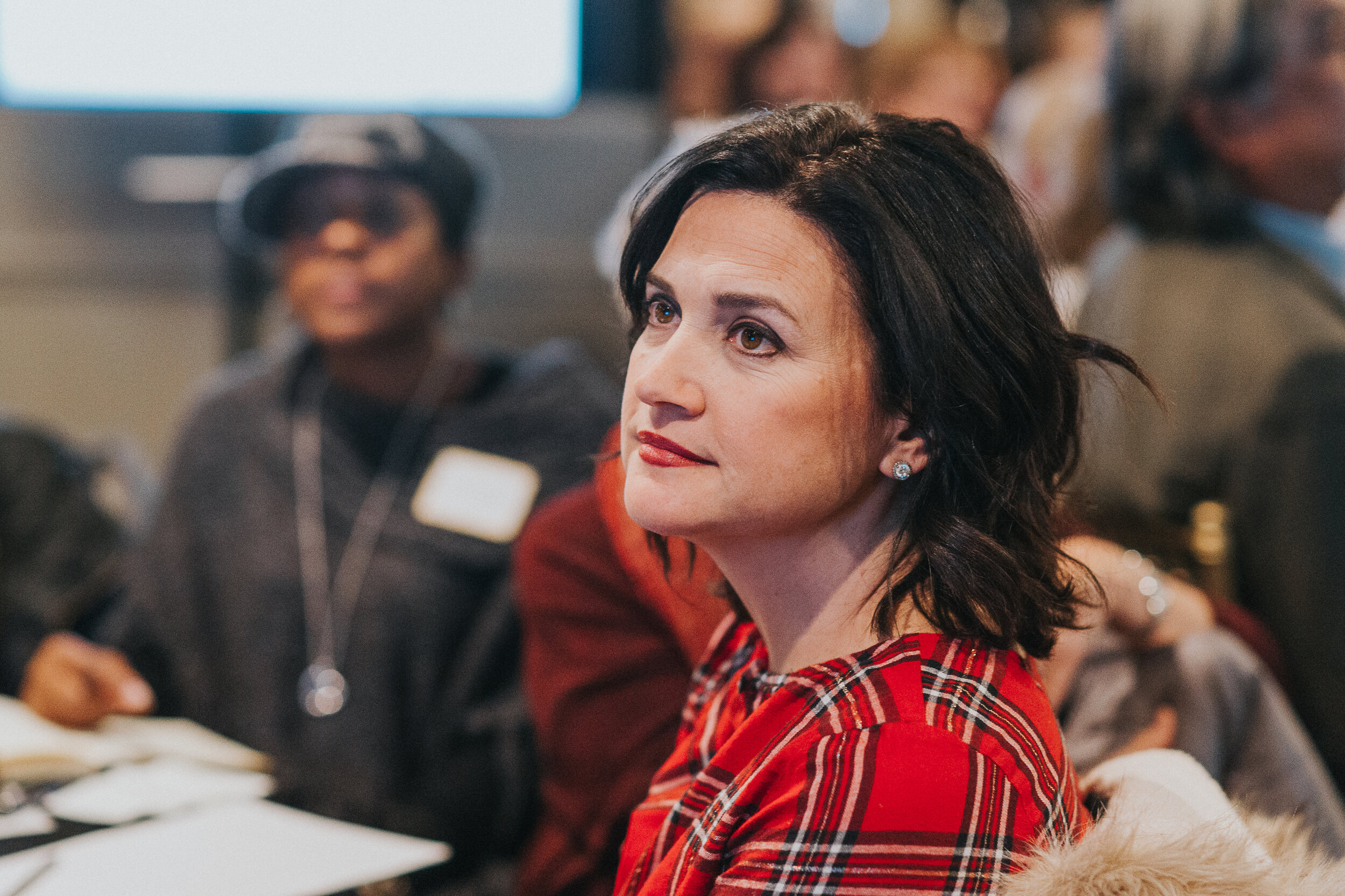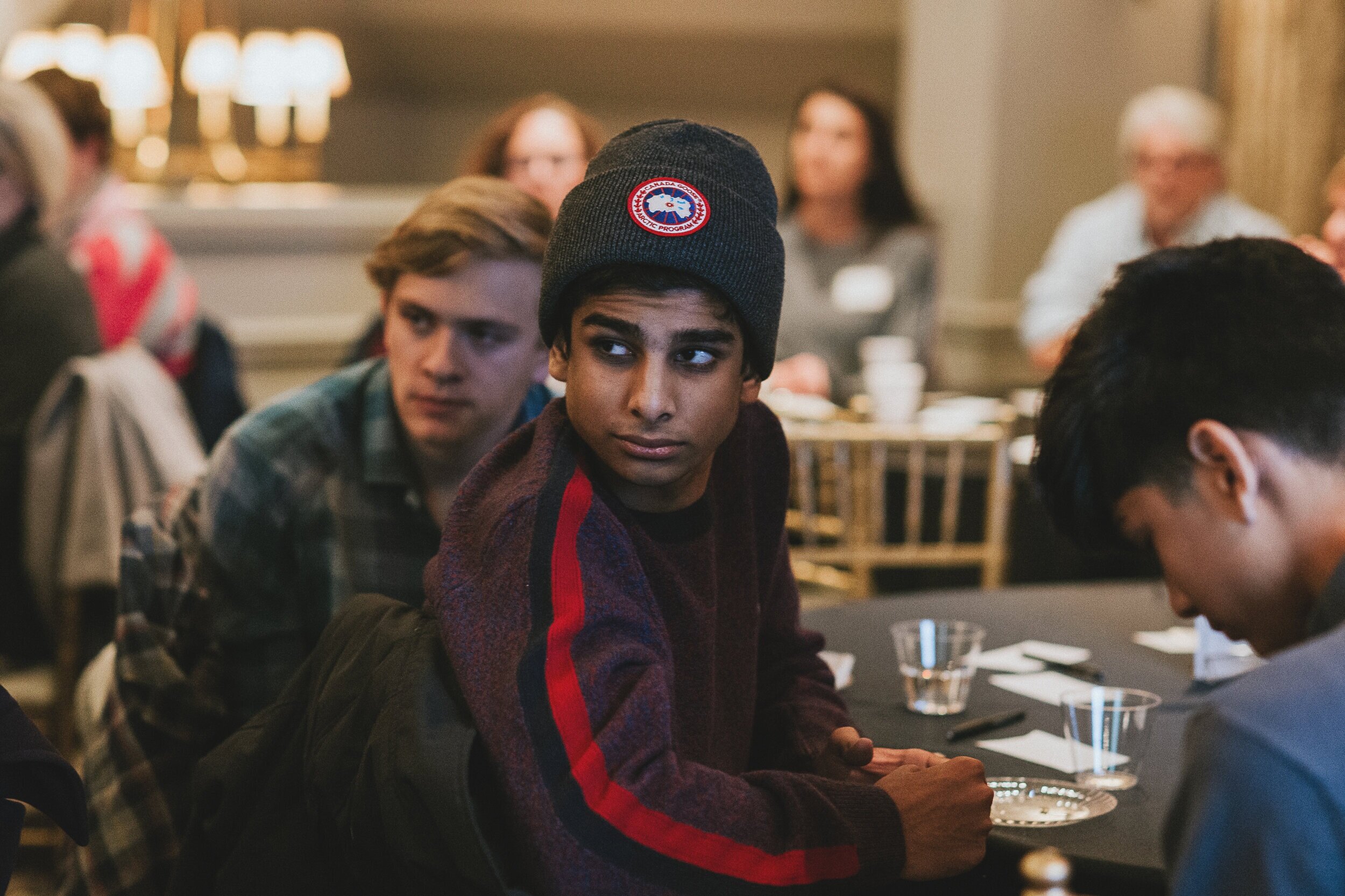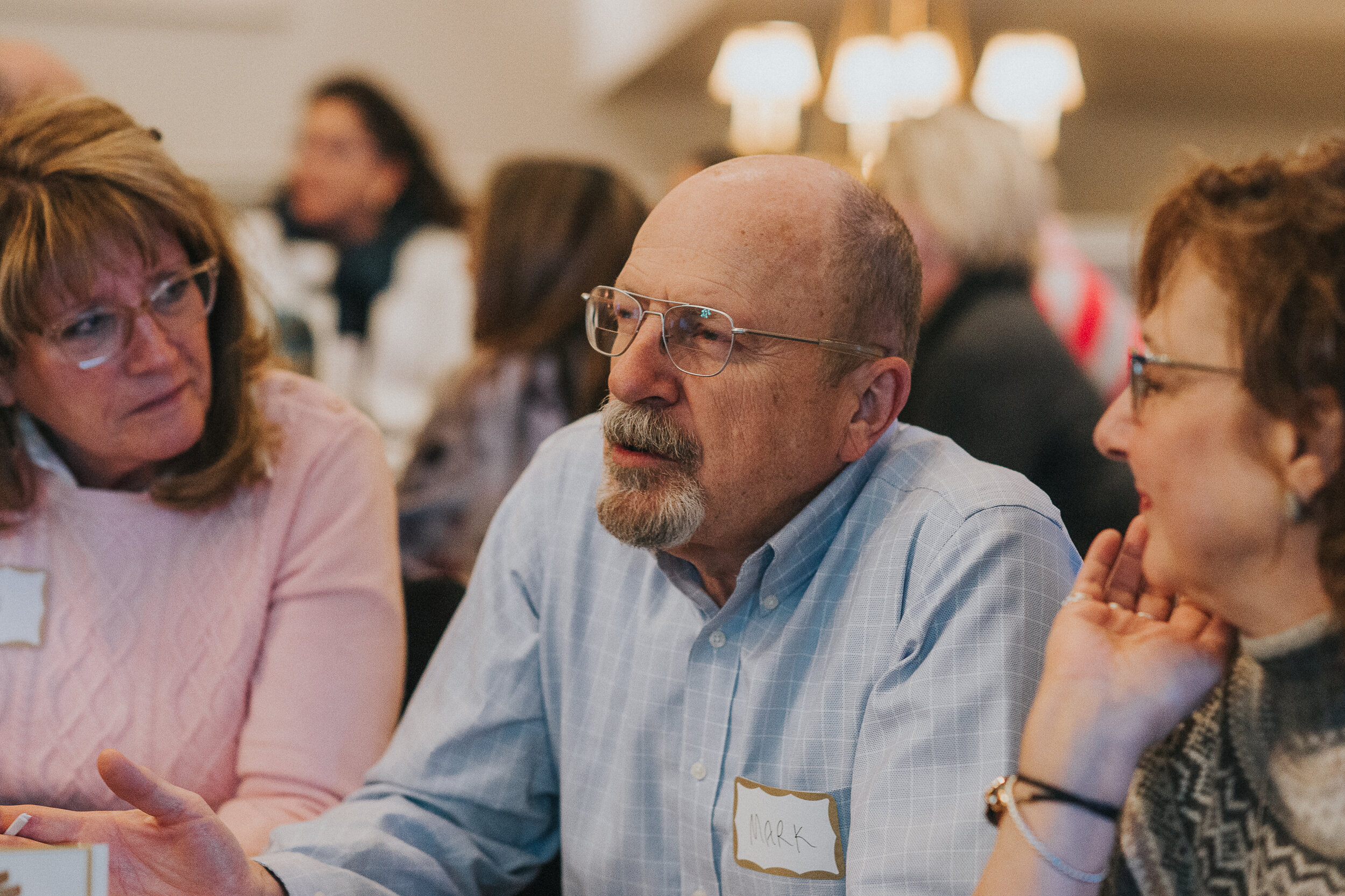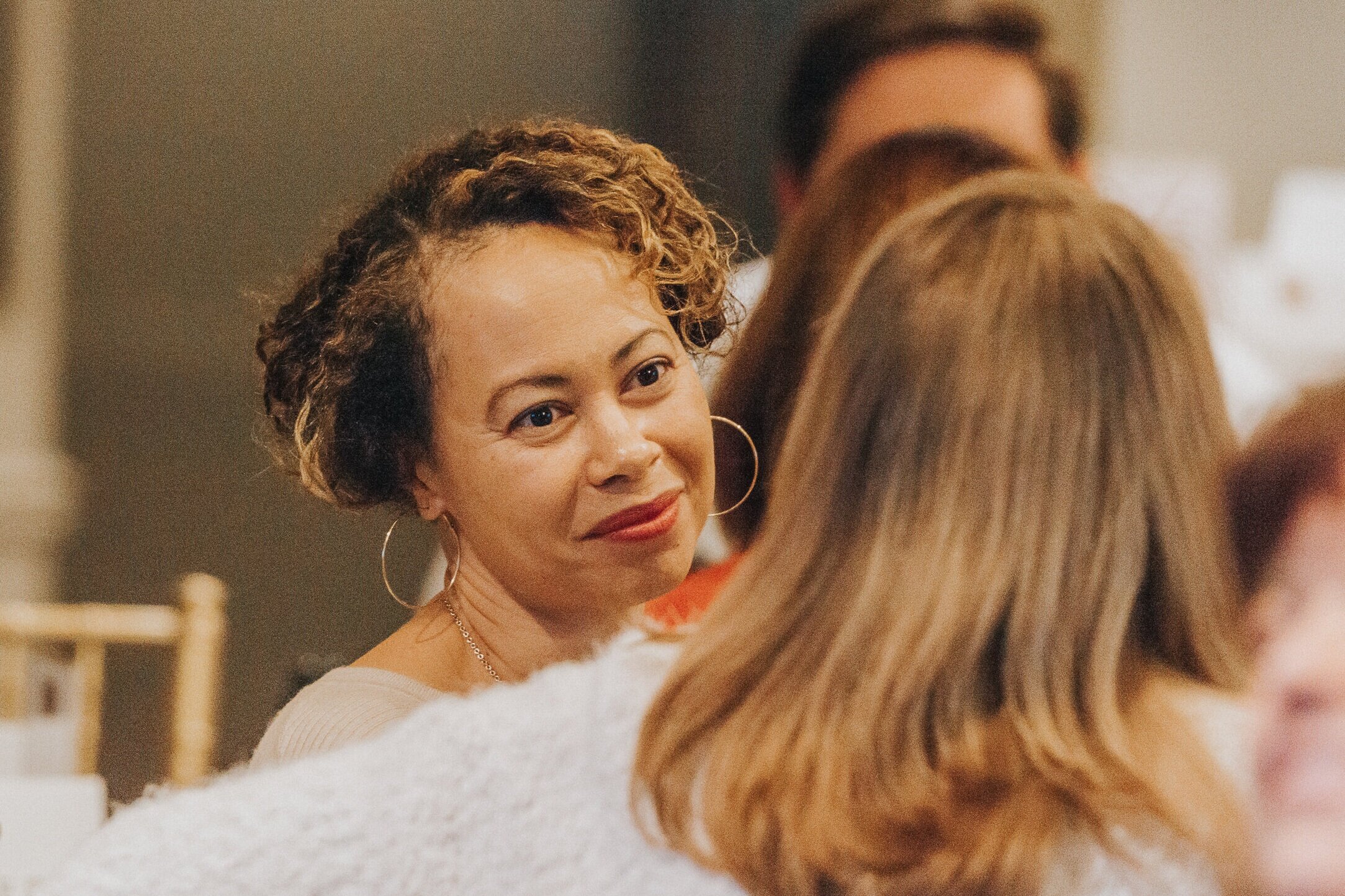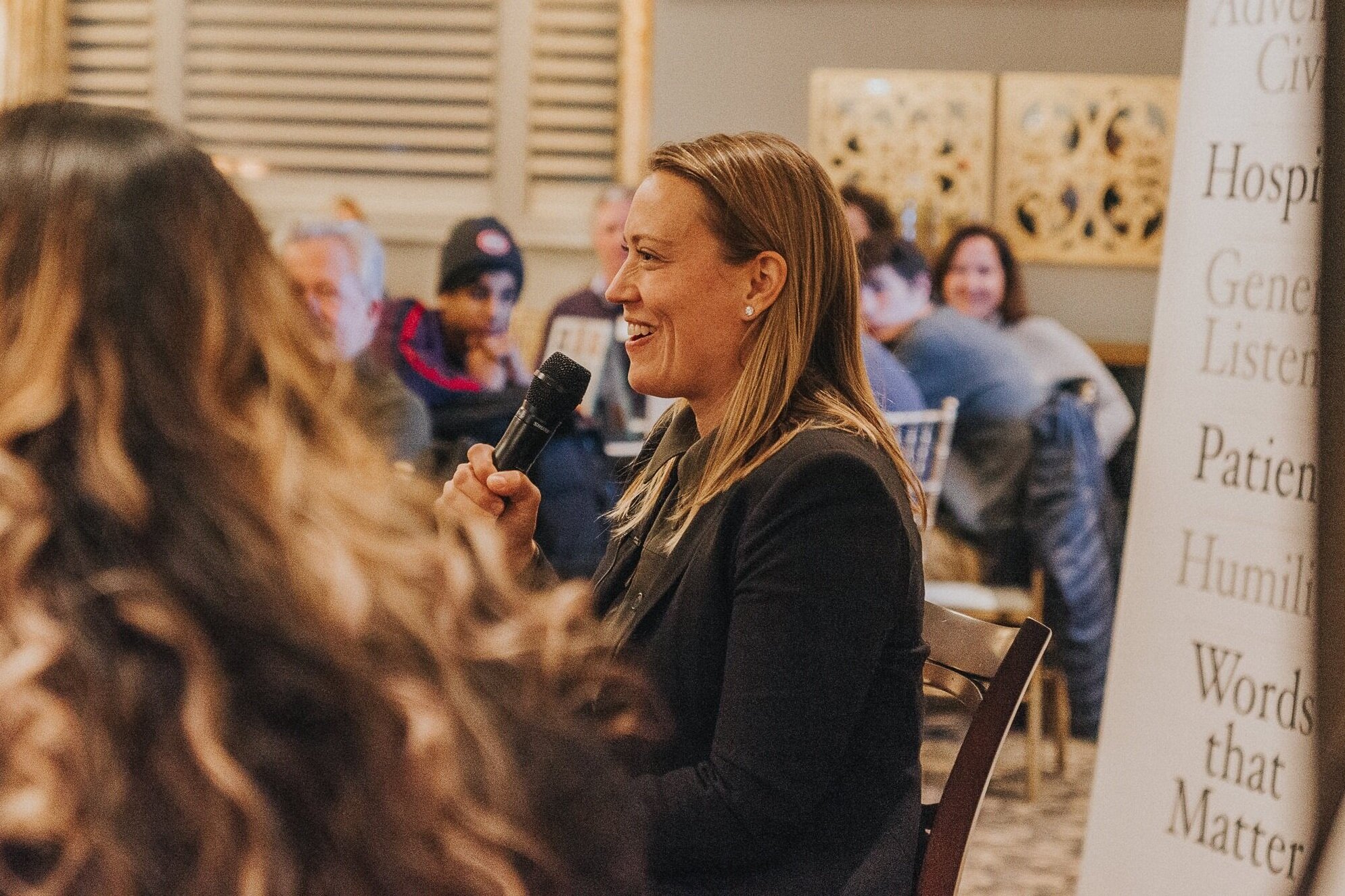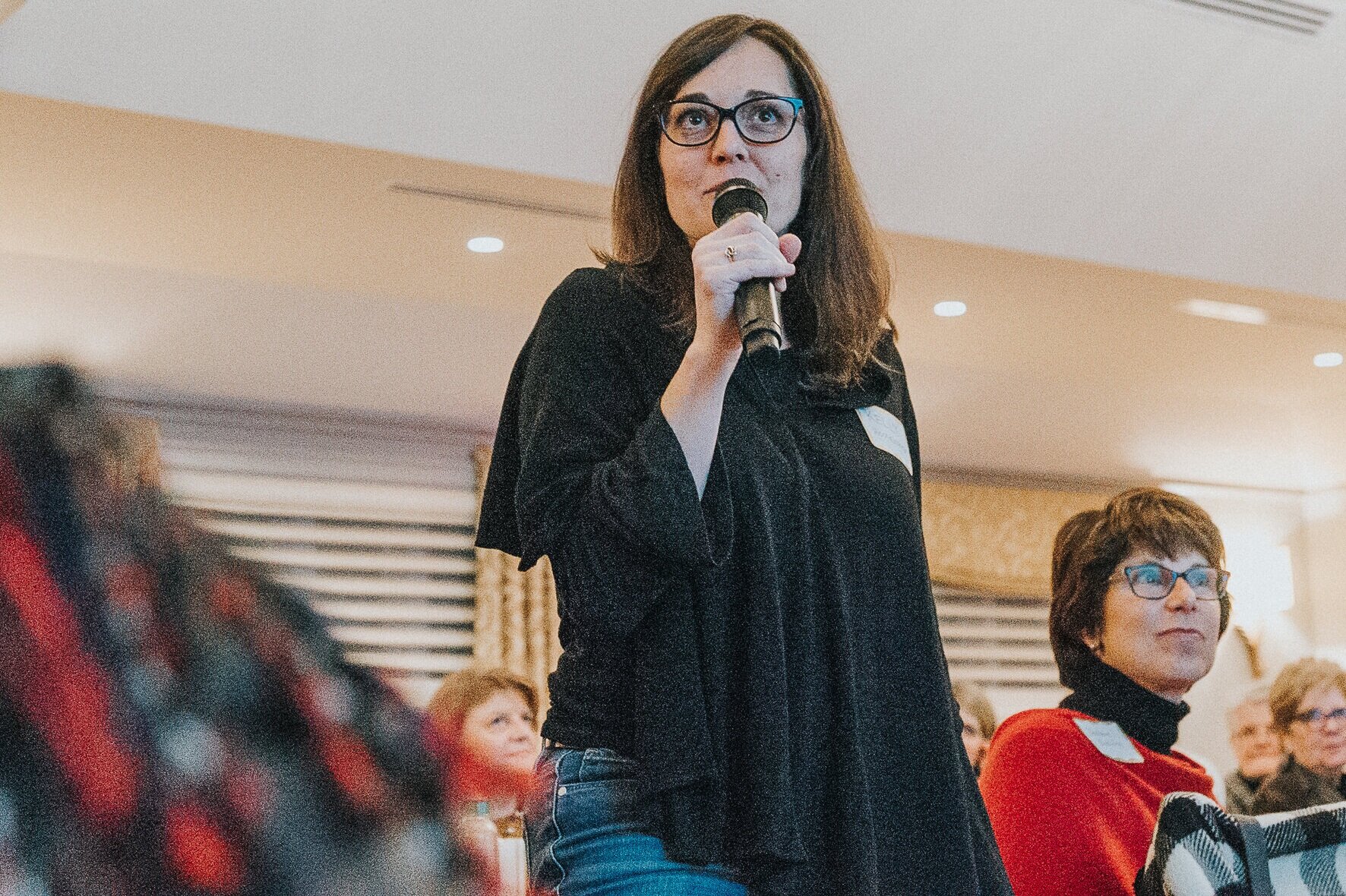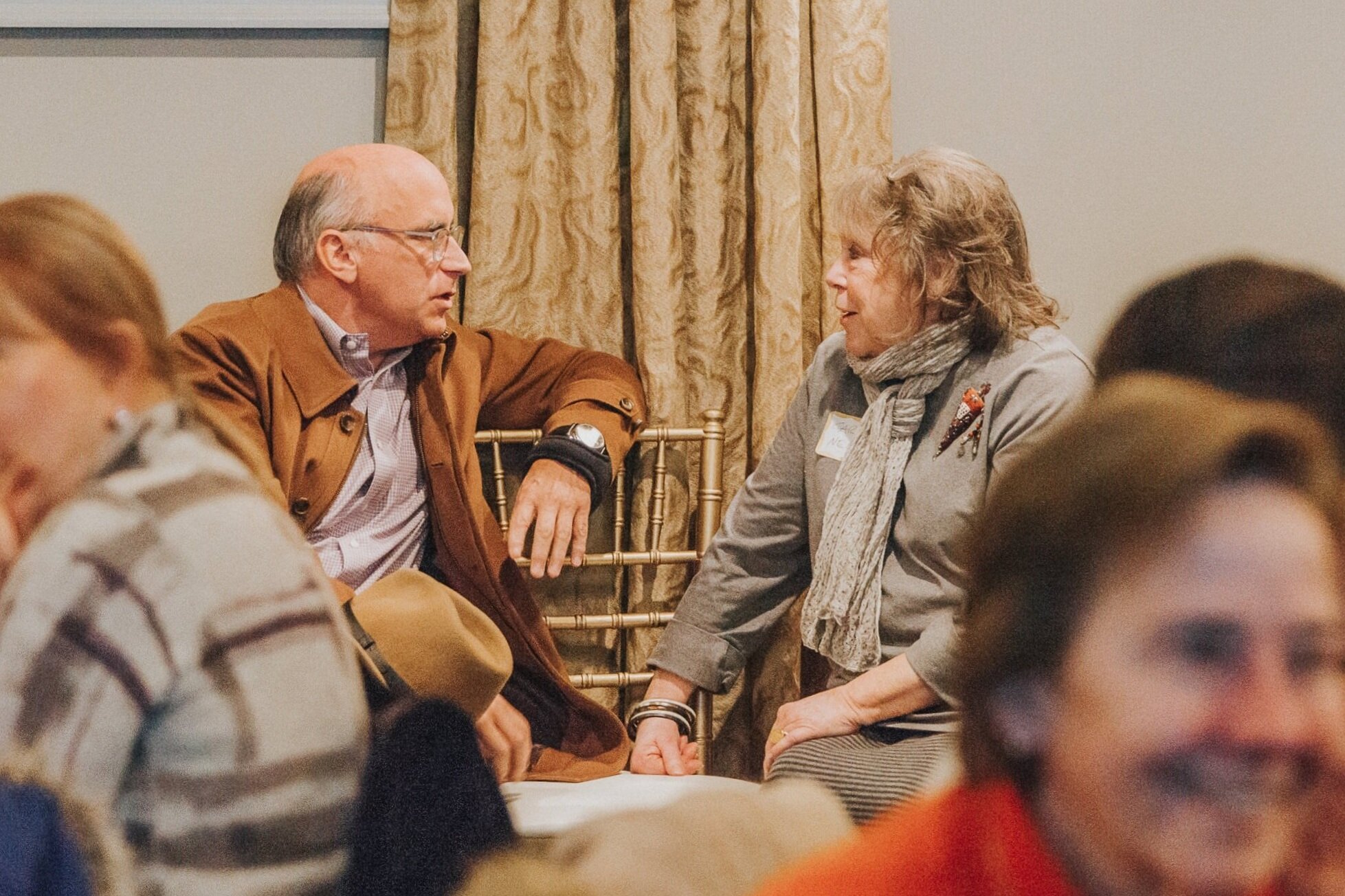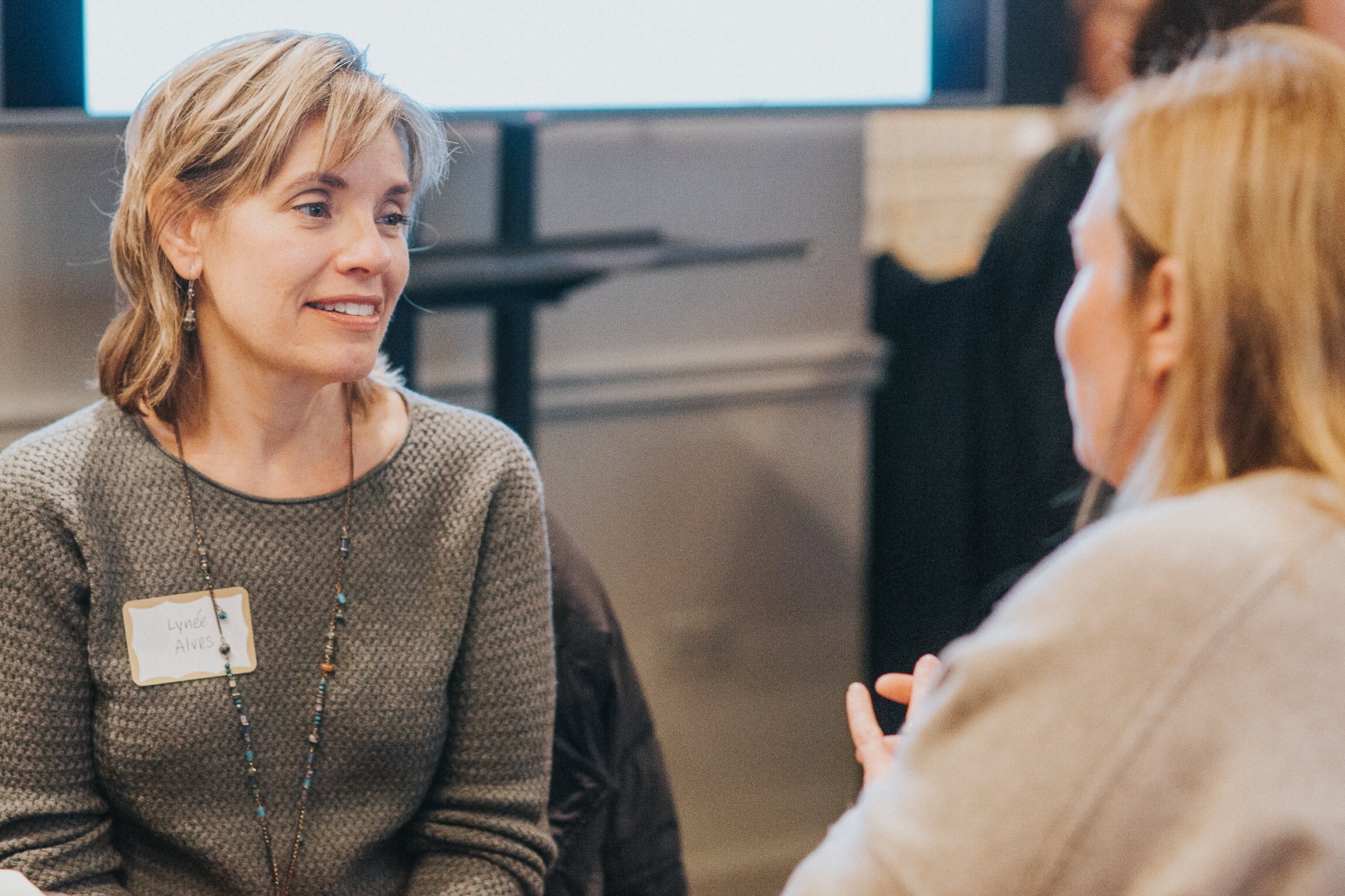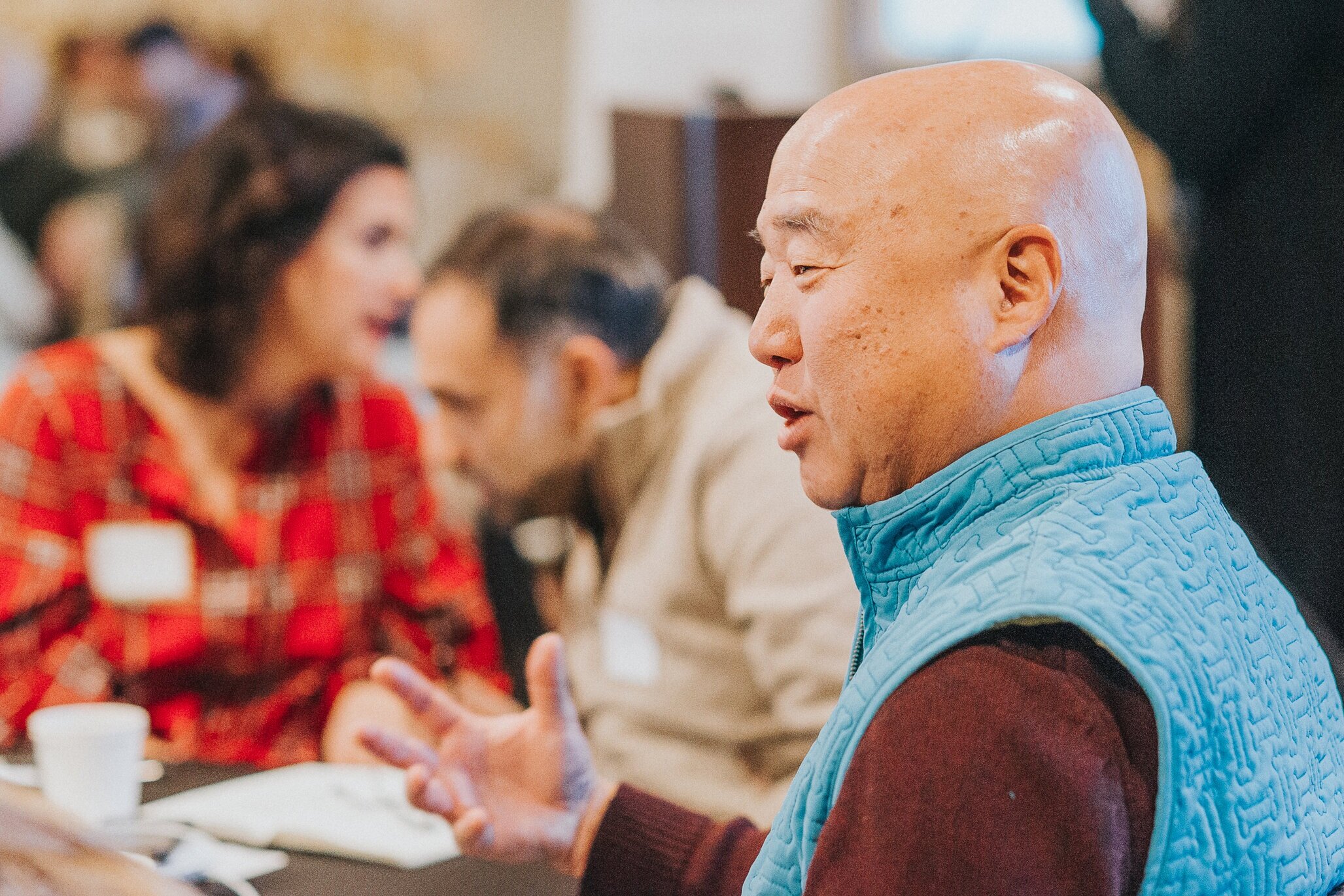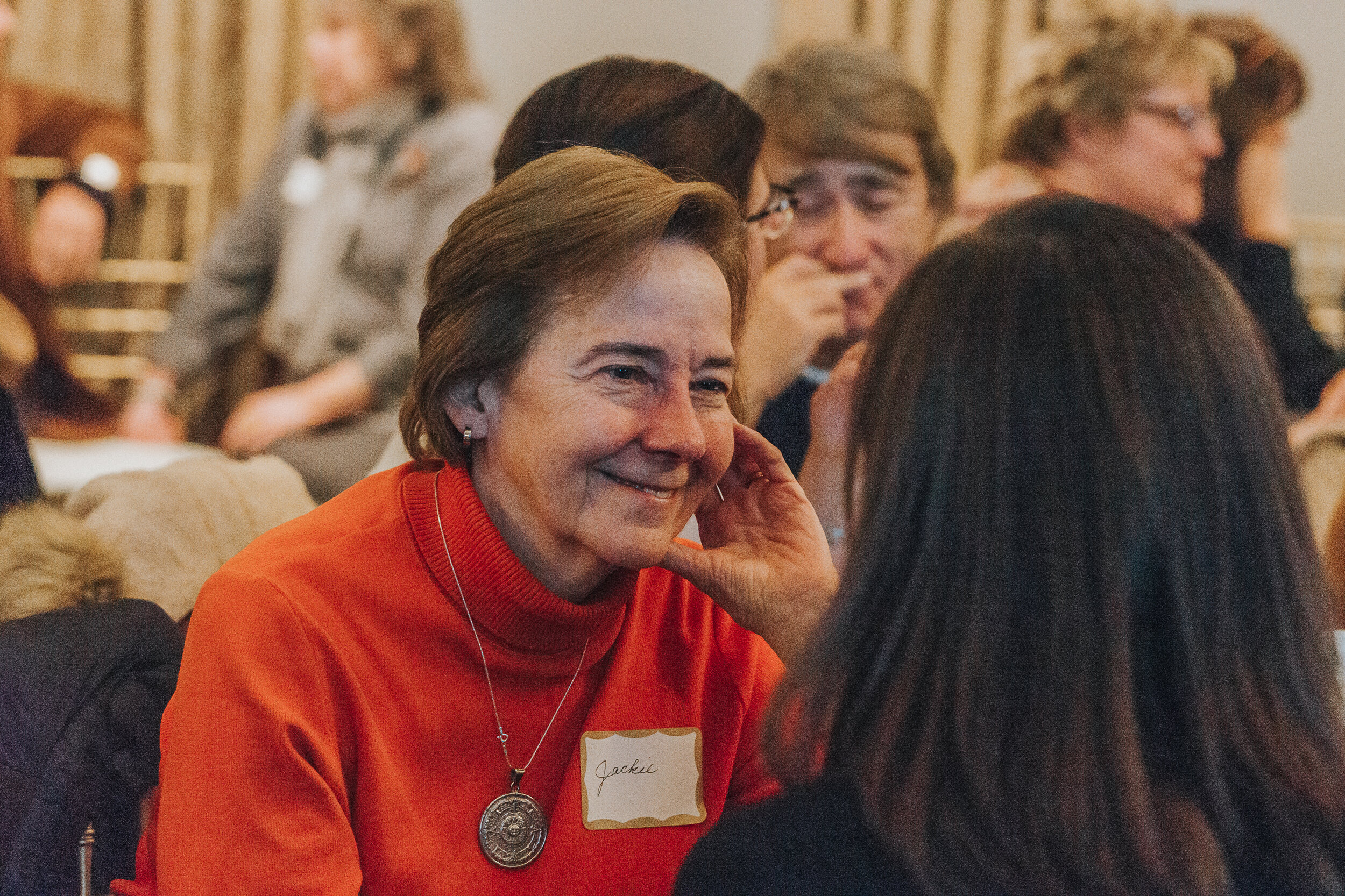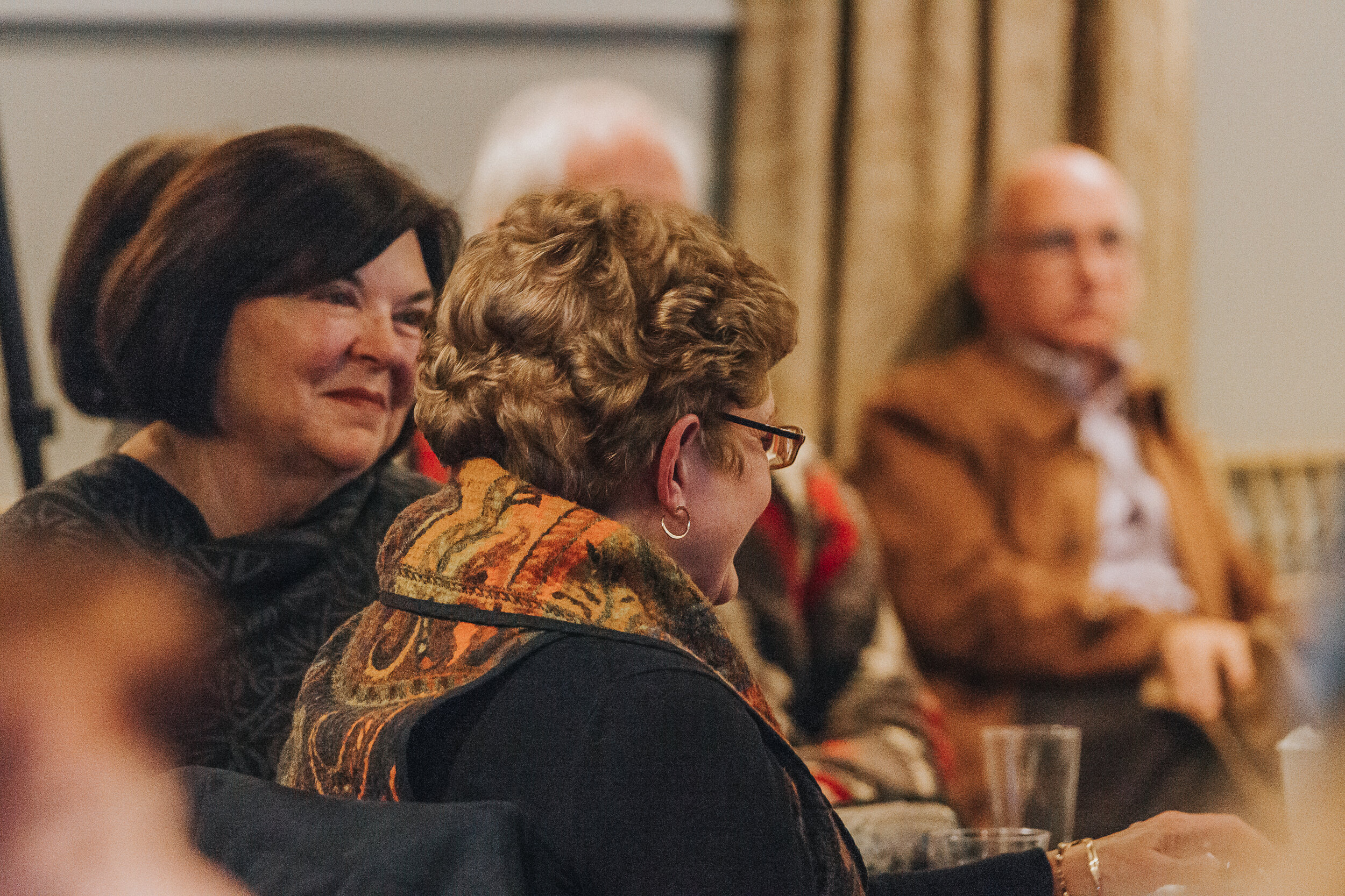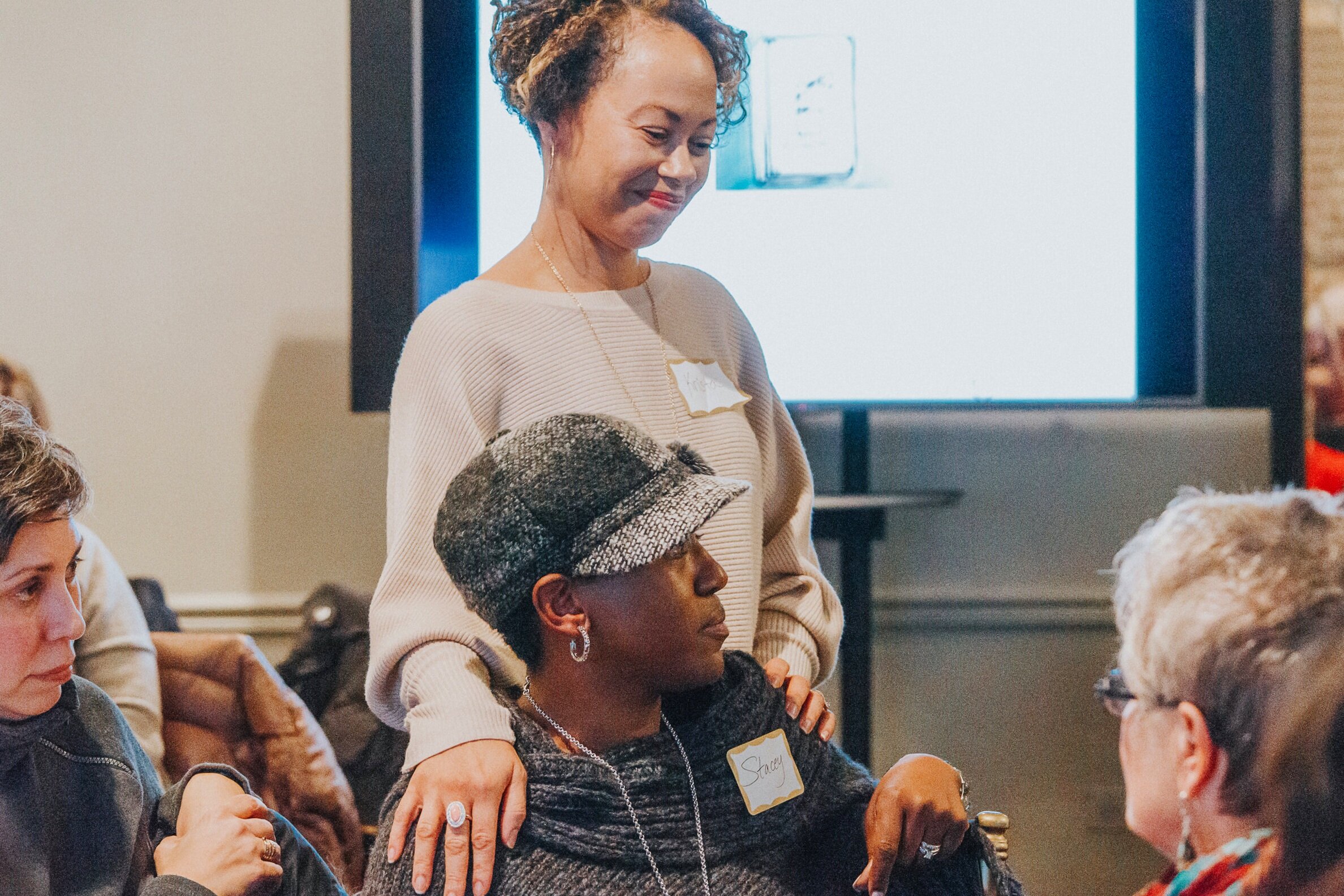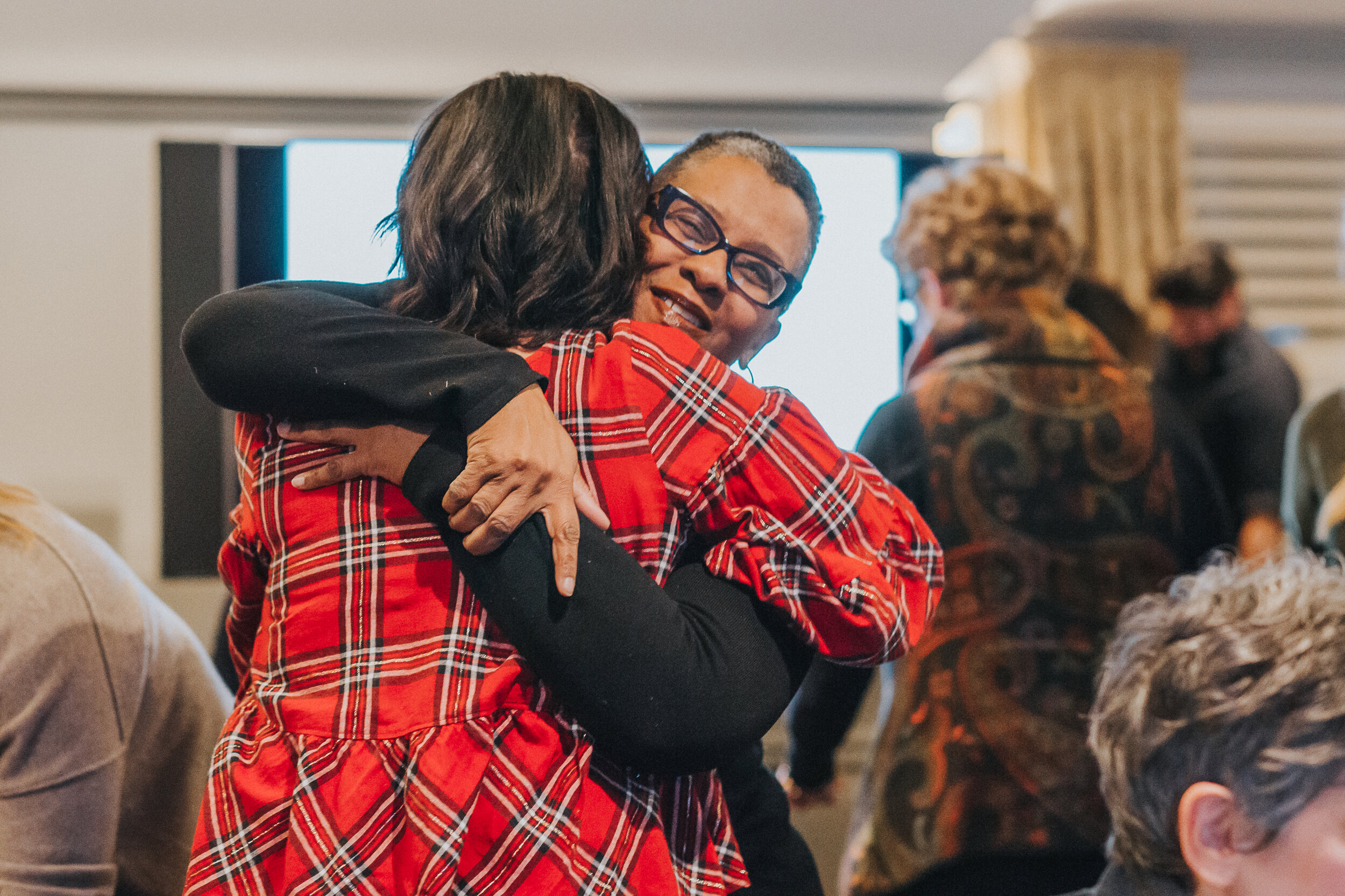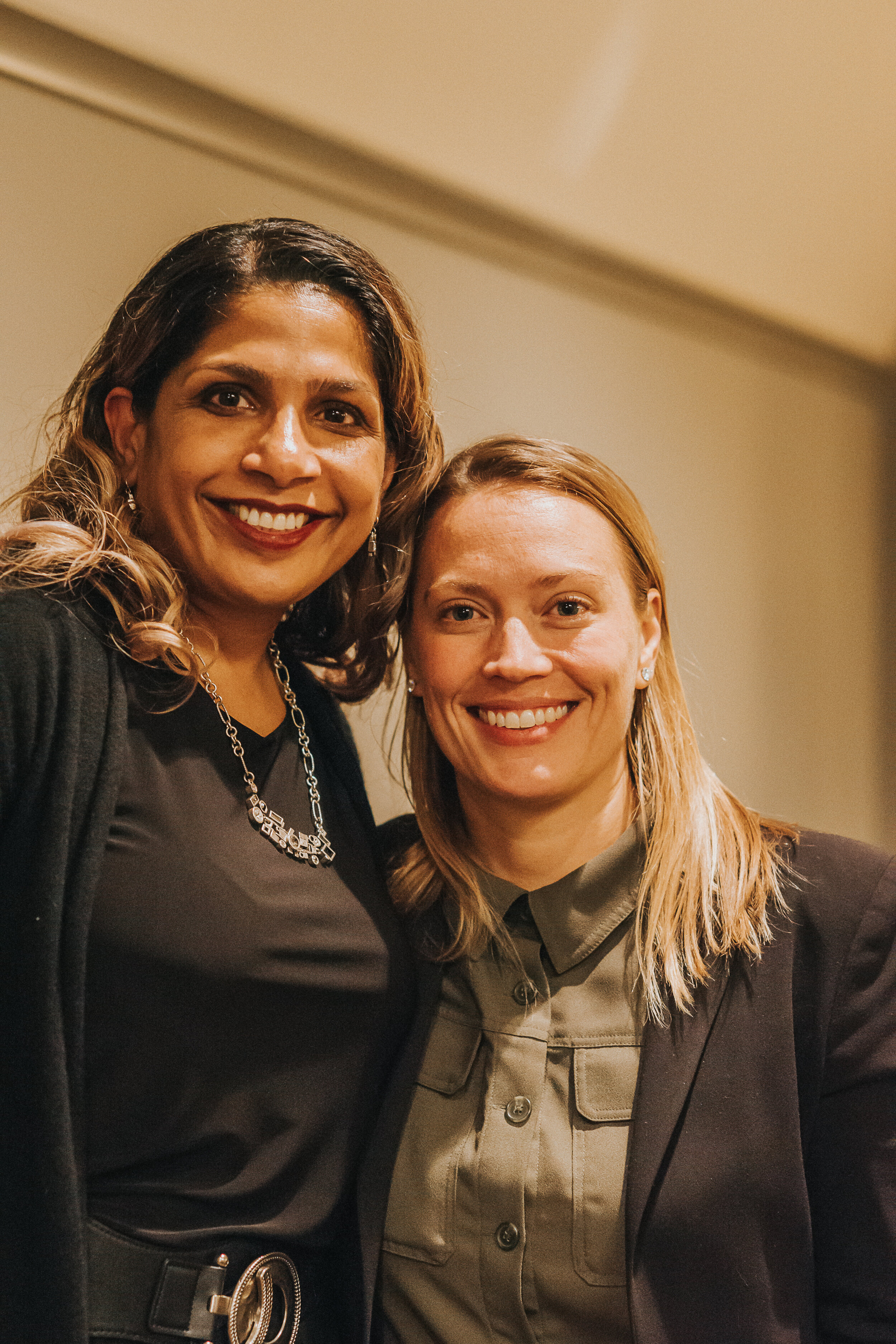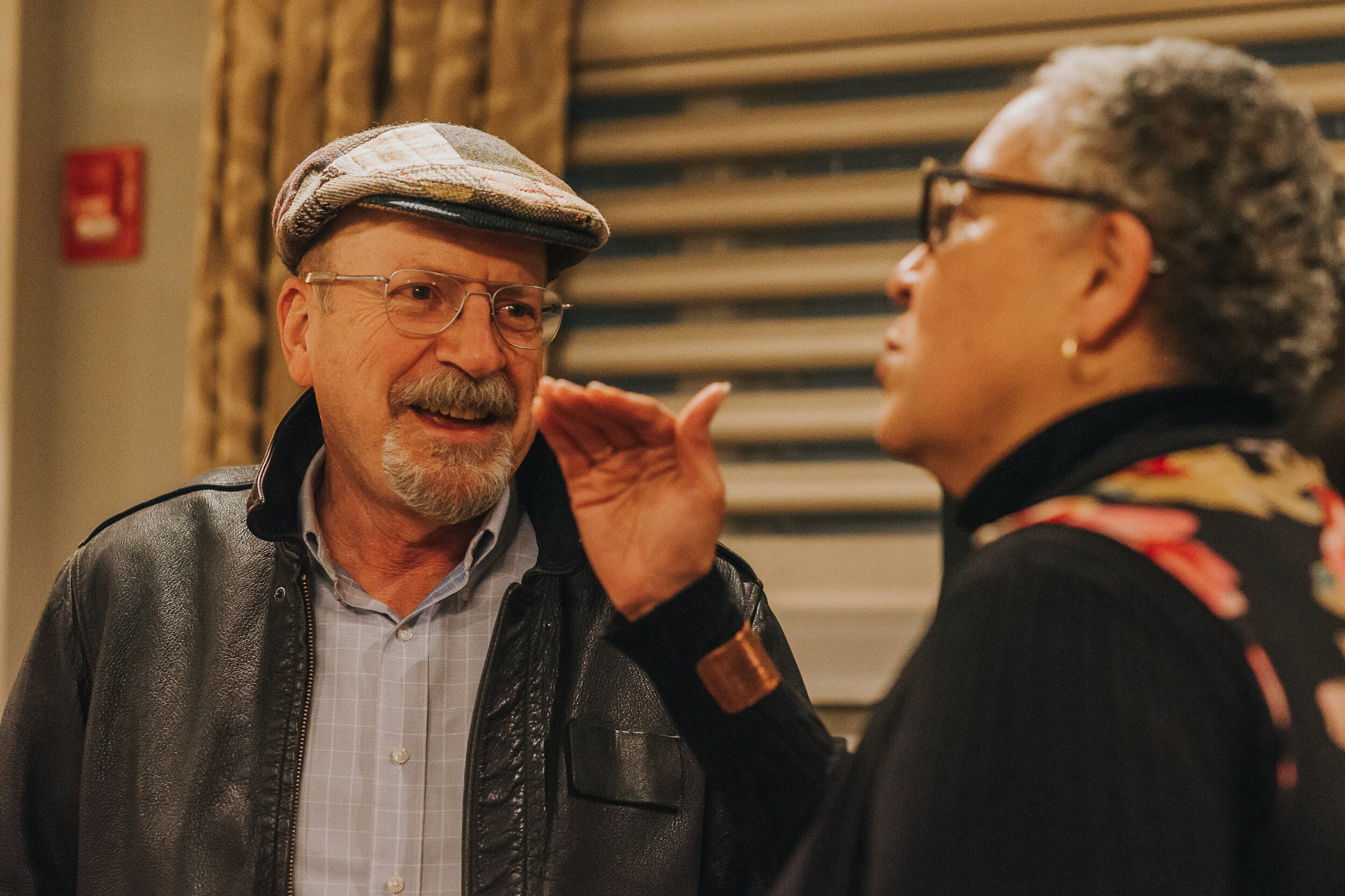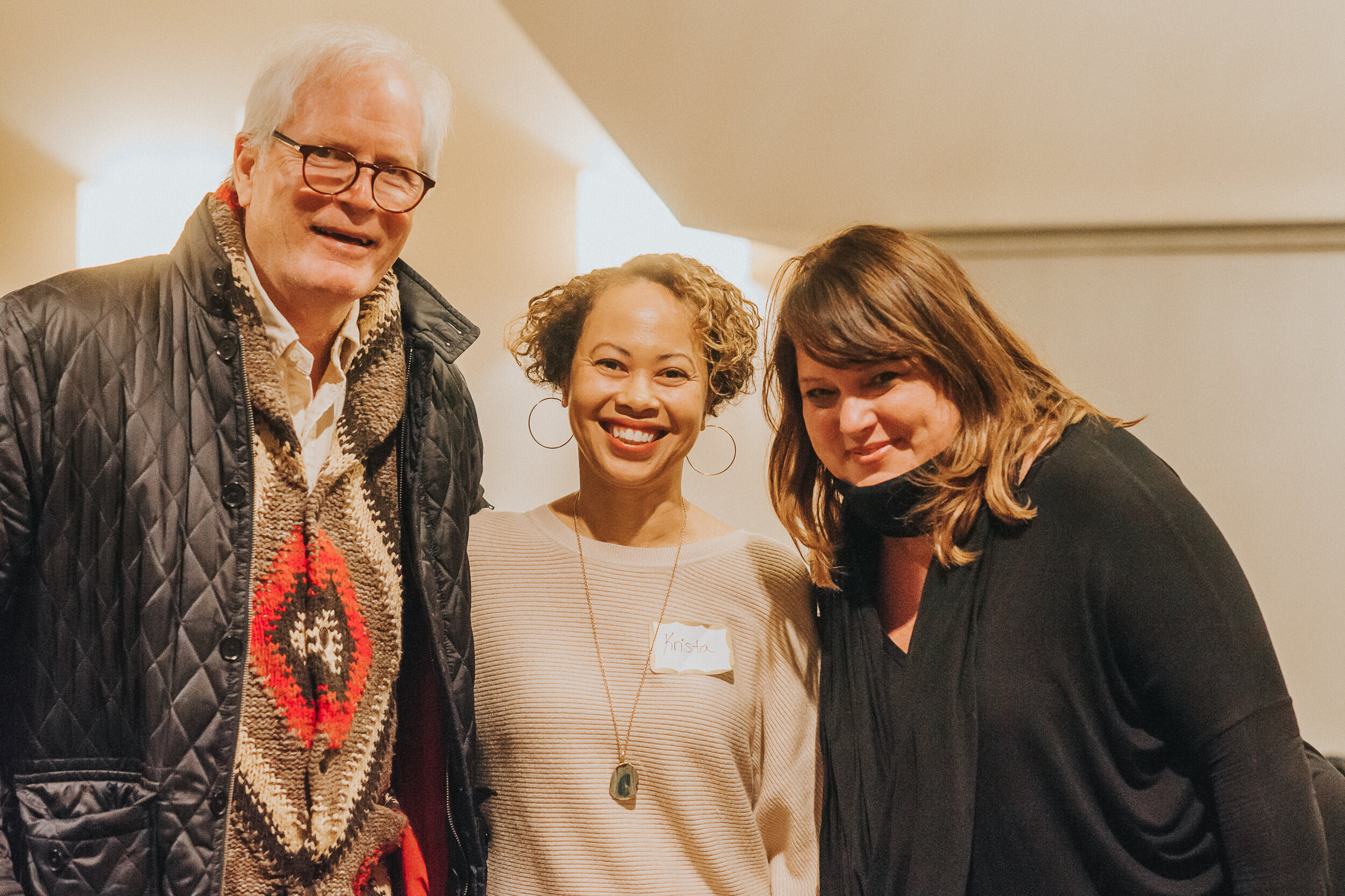BY TAMARA TABEL
Could disrupting bias start with switching on your curiosity?
In the third session of A Year of Courageous Conversations, Dr. Arin N. Reeves of Nextions returned to share how cultivating curiosity can open us to listening in challenging exchanges and encounters where quick judgments can stunt progress. By asking questions instead of filling in gaps with our biases and assumptions, we can better understand other perspectives and choose our responses based on new knowledge.
Choosing, Not Reacting
Dr. Reeves began with a recap of the past two sessions, Defining Courage and Practicing Mindfulness.
“Between stimulus and response there is a space. In that space is our power to choose our response. In our response lies our growth and freedom.” -Viktor E. Frankl, neurologist and Holocaust survivor
Reeves reminded us that fear is an unconscious reaction. After an emotional stimulus, our brain gets “highjacked” and we have a reactionary response in less than one second. Eighty-five percent of the time, we take the “low road.” But other times, we might like to take the “high road.” When we’re scared, before we react, we can stop ourselves and ask, “What do I want to do here?” If we’re mindful, we can choose a different path.
Reeves led the room through an exercise: “Think of a courageous conversation you need to have. How would you feel if I said you had to have it today? Where is that sitting in your body? What tensed? Your shoulders? Your stomach?” She asked guests to scan their bodies and take ten deep breaths.
“Knowing allows you to choose,” said Reeves. “Whether it means to have more courageous conversations, or to just be more human, you always want to have that choice.”
Sparking Curiosity
As a warm up, Dr. Reeves asked each table to go around and share their favorite song or musician without any explanation or embellishment — just the names. Chances are, she said, there will be music you’ve never heard before and will want to ask a follow-up question.
Reeves asked us to hold that feeling — that place where we want to know more. If we can do it with something uncontroversial like music, we can do it with weightier subjects.
“Curiosity and bias cannot coexist in your brain at the same time. The minute you say ‘I am curious about this,’ your brain literally halts putting a bias in there.”
- Arin N. Reeves, Ph.D.
Flipping the Switch
There is a space in the middle of stimulus and choice. You have two ways to go — either with your bias or your curiosity.
Bias is an automatic reaction. To demonstrate, Reeves led us through a memory exercise she does with judges in the criminal justice system.
She relayed a story of two young people driving in a car who are stopped by police. The story was packed with numbers about their speed and distance. She then asked the room to answer questions about certain details from the story. Were there two boys or two girls in the car? What music was playing? Was the setting urban or rural? What drugs were in the trunk?
What we discovered is that where Reeves had left blanks in the story, we had filled them in with our own imaginations and biases.
Reeves encouraged us to think about what we think we are seeing or hearing that’s not there.
“Your brain fills in with images that are out there. We can literally manipulate what you’re going to think and hear by deciding what stories to tell and how we tell them.” Advertisers, for example, might determine what information to leave out because you’ll populate it on your own. Or they will present information to strengthen a particular bias you already have.
Reeves presented the analogy of a switch — flip up for curiosity, or down for judgment. When you’re in curiosity, you’re open to listening and asking more questions. If you flip the switch to judgment, your biases will come into the story.
“It can be that simple,” says Reeves, that switch.
“The goal of having courageous conversations is not about getting rid of bias. It’s about knowing that you’re going to have biases, but you’re going to get good at interrupting through curiosity.”
- Arin N. Reeves, Ph.D.
Wanting to Understand
When you have that moment of mindfulness, it can be because you took a deep breath. Because you paused. Because you held up another value that is really important to you, like love. It begins when you don’t understand, but want to understand. When you become curious, you fade out the fear. Curiosity overpowers it.
To practice, Reeves suggests using simple questions like: Who? What? Which? Why? How? When? Where? With? She also suggests some great questions to ask ourselves the next time we want to approach a courageous conversation with curiosity. (For a list, click here.)
“If you’re ready, you can ask these questions of people. And once you have that information, you go from ‘I don’t understand and I want to understand’ to ‘Now that I know more, I can choose how I want to respond.’”
Having courageous conversations, she reminded, is not clean, not linear — it’s one of the messiest things we can do. But by being able to step back and willing to grow, we can learn.
“The courage to have curiosity and then choose it is powerful. Because without that, we can’t even start to think about differences.”
- Arin N. Reeves, Ph.D.
Sharing Stories
To help demonstrate how these ideas apply in a real-life situation, co-host Jessica Green put herself in the hot seat to be interviewed by Dr. Reeves about a personal experience after the 2016 presidential election.
In Green’s words, she tried but failed to have the courageous conversation she desperately wanted to have. She was upset with the election result and confused how some in her family, whom she loved very deeply, could share similar values yet demonstrate them so differently, through this avenue.
“So what happened?” asked Reeves.
“I yelled,” said Green. “I was crying. I felt sick to my stomach.”
She was afraid for her country and children. Fear highjacked her brain and she struck out in anger.
But after this rough start — and over a very long period of time (not days or weeks, she emphasized, but months and years) — she began to lean in and let another powerful emotion take center stage: love.
“Sometimes when we’re in these positions of fear,” said Reeves, “listening starts when we hold up a value that’s equal to fear.” One of the best roads out of fear is love. But love isn’t the only force — it can also be creativity, or patriotism, or even a commitment to inclusion. We can then create that space for curiosity.
“Now we’re listening,” said Jessica. “We’re talking about things we never talked about before. The change happened on both sides, but mostly within me.”
More guests bravely shared deeply personal stories with the room.
One guest relayed an incident where her fear in a minor traffic accident caused her to question her own racial bias. Then Fellow Stacey Mays-Douglas shared, with powerful emotion, her fear for her teenage son driving because the color of his skin may put him in danger. This wasn’t an imagined fear, he had been pulled over many times.
Mays-Douglas appealed to the audience to consider their biases before rushing to judgment, and welcomed one-on-one dialogue over coffee or wine.
With the sharing of these stories, the change in the room was palpable. Some wiped away tears. Others connected with a comforting hand or hug.
We Are All Becoming
Co-host Dr. Reverend Zina Jacque encouraged us to continue our efforts, practicing what we’re learning on this journey — knowing that it might hurt, that we are going to make mistakes, that we might discover things in our own being that require examination or transformation. But we are all in the stage of “becoming.” Growing. In process.
Bringing us back to our childhoods, Jacque read a favorite passage from the classic children’s book, The Velveteen Rabbit, about a stuffed animal who longs to become real:
"Real isn't how you are made,” said the Skin Horse. “It's a thing that happens to you…”
“Does it hurt?”
“Sometimes,” said the Skin Horse…
“Does it happen all at once, like being wound up,” he asked, “or bit by bit?”
“It doesn't happen all at once,” said the Skin Horse. “You become. It takes a long time. That's why it doesn't happen often to people who break easily, or have sharp edges, or who have to be carefully kept.”
Cultivating Curiosity is the third of ten monthly sessions for A Year of Courageous Conversations exploring how to foster greater inclusion & belonging in our community. Presented by Urban Consulate at Barrington’s White House in partnership with community advisors, the series is made possible thanks to support from Jessica & Dominic Green, Kim Duchossois, Sue & Rich Padula, Barrington Area Community Foundation and BMO Wealth Management.
To learn more, visit CourageousConversations.us
